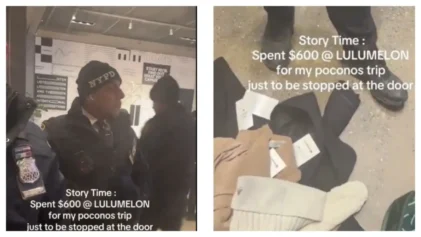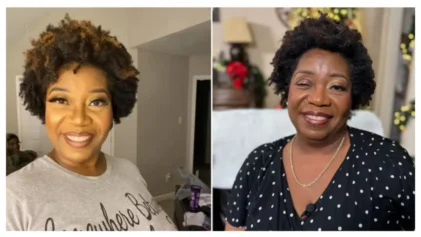As the world becomes increasingly urbanized, one Black-owned Atlanta farm says farming in metropolitan areas isn’t just a good idea — it’s essential.
Agriculturist K. Rashid Nuri founded the Truly Living Well Center for Natural Urban Agriculture in 2006.
The mission of farmers working the abundant 3.5-acre land on Lawton Street has been to promote good health, including through educating others on a plant-based mindset.
“Seeing that Black people can farm, can grow food and can actually be healthy, that’s really good for the people,” said farmer Noah White, who has been working at Truly Living Well since high school.
“There are so many of us who, because of our resources, are eating things that aren’t really good for us,” said executive director Carol Hunter. “When we learn how to grow that which is healthy for us, it changes the whole dynamic of our family.”
Their farmland includes a greenhouse, a grow house, an aquaponics center and over 100 fruit trees, Hunter shared.
“We can teach people how to grow food in a variety of ways, and we make sure that food is available for our community here,” she said.
Farmers encourage visitors to explore their market, tour the land and try one of Truly Living Well’s gardening classes.
From collard greens to kale and everything in between, the 30,000 pounds of food the farm produces annually is organically grown without herbicides or pesticides.
Hunter says healthy soil is key.
“We have a community composting lab where we build and grow our own composting, we do vermiculture with worms and worm castings, so the health of our soil is extremely high, and that helps deter some of the problems,” said Hunter, who’s been with the farm since 2011.
Truly Living Well’s land has continued nourishing the community over the years in spite of setbacks related to systemic racism that has historically plagued Black farmers.
“There was one point in history where the majority of African Americans owned land and were very much engaged in farming,” Hunter said.
“Systemic racism has had a huge impact on the decline of African Americans who are in farming,” Hunter said. “We’ve had some issues around land trusts and being able to hold on to our land, but the beauty of where we are right now is we’re understanding how important land is, and we’ve got opportunities to go back and reclaim some of it.”
The farm educates visitors on land ownership through a consultant who specializes in teaching how they can hold on to land and set up legacy land so that it remains for generations to come, Hunter shared.
“That’s such an important part of our story,” she said.
While it has mostly thrived, Hunter says during the pandemic, Truly Living Well did take a financial hit. Forty-five to 50% of the nonprofit organization’s funding comes from in-person events like tours and its on-site markets.
“We couldn’t gather, so all of that revenue went away,” Hunter explained.
Still, the farm continues to bounce back from the impacts of the pandemic, having recently hosted its first gardening class and plant sale of the fall season.
“If you see us at a farmers market, make sure you’re buying our food, If you see us working in your community, make sure you ask how you can support the work that we’re doing,” Hunter said. “We need to be here for their communities.”


